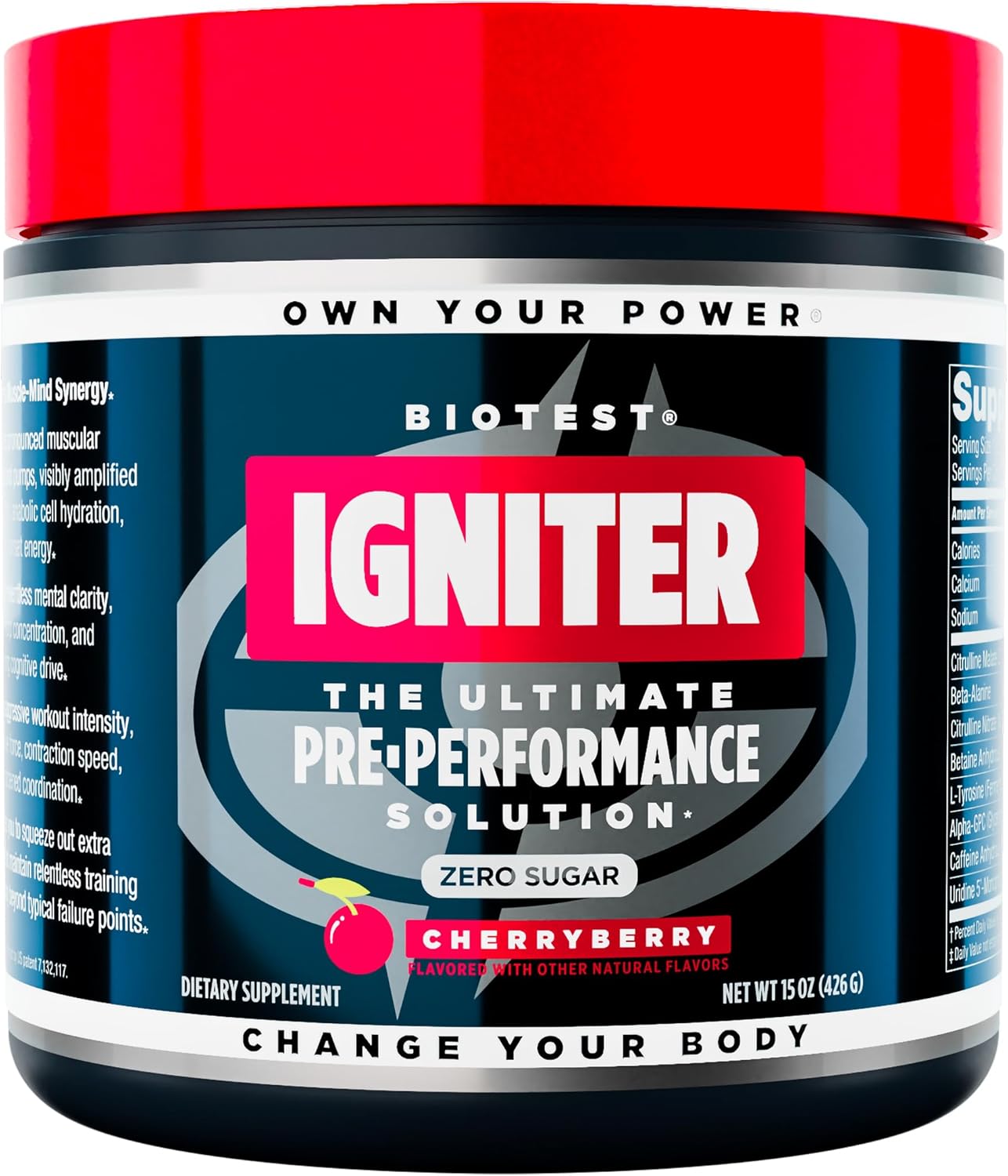- What's New?
- Why a Home Gym?
- Functional Trainers
- Longevity Training
- Fat Loss Workouts
- The Best Workout For Men
- Fat Loss For Women
- Healthy Eating
- How To Improve Your Microbiome
- Biosuperfood
- Iridesca
- Superfood
- Shilajit
- Micellar Curcumin
- Rez-V
- Beta Glucan
- P-Well
- Copper GHK
- Fibrenza
- LipiCept
- Flameout
- Igniter
- Indigo-3G
- Omega-Man
- Feral Tissue Protocol
- Pancremet
- How To Avoid Microplastics
- AirDoctor 3500
- ENVION Therapure
- Airpura R600
Igniter Review
---------------------------------------------------------------------------------------------------------------- Igniter ReviewWhat motivates us to do things? Why do we get jobs, pursue mates, and hit the gym? Well, because we want something: rewards. Jobs reward us with money and security. Relationships reward us with companionship. Training rewards us with strength, health, and better-looking companions. Our brains are wired for this. Dopamine is our brain's "drive and motivation" neurotransmitter. It's not a pleasure neurotransmitter like endorphin, and it's not a feel-good neurotransmitter like serotonin. Instead, dopamine is more like a signal that something is worth pursuing. When released in the mesolimbic pathway, dopamine flags rewards and meaningful goals, increasing the urgency and energy to act. Rather than making you feel satisfied, dopamine fuels the anticipation of reward, reinforcing behaviors that move you toward your goals and keeping you engaged until those goals are reached. Dopamine is powerful stuff, and three ingredients work together to increase dopamine-mediated motivation: tyrosine, uridine monophosphate, and caffeine. 1. Tyrosine: The Dopamine Building Block L-Tyrosine is an amino acid precursor to L-DOPA, which is converted into dopamine. By increasing substrate availability, it boosts dopamine synthesis, especially in situations where production is strained (stress, lack of sleep, or intense mental demands). Dopamine availability is key for the brain's "wanting system" – the mesolimbic pathway – which drives our goal-directed behaviors. When tyrosine prevents dopamine depletion, the "get after it" signal stays strong, sustaining effort and focus during prolonged tasks. 2. Uridine Monophosphate: Receptor and Synapse Modulator Uridine is a nucleotide that's converted to uridine triphosphate and ultimately incorporated into brain phospholipids during membrane synthesis. It upregulates dopamine receptor density and enhances synaptic formation. More dopamine receptors make the brain more sensitive to existing dopamine signals. This doesn't necessarily raise dopamine levels, but it amplifies the impact of dopamine release, improving reward sensitivity and sustained motivation. Uridine works well with dopamine precursors like tyrosine because increased synthesis (from tyrosine) plus increased receptor availability (from uridine) both contribute to a stronger motivational signal. 3. Caffeine: The Disinhibitor of Dopamine Signaling Caffeine primarily blocks adenosine receptors (A1 and A2A). In dopamine-rich areas like the striatum, A2A receptors act as "brakes" on dopamine D2 receptor signaling. When caffeine blocks A2A, it removes that brake, allowing dopamine to produce a stronger postsynaptic response. This enhances the rewarding nature of tasks. Caffeine's stimulation of norepinephrine release also indirectly boosts arousal, which can pair with dopamine's goal-pursuit role for a compounded motivational effect. Put all that together, and you get this: Tyrosine: More dopamine made. Uridine: More dopamine receptors and synaptic efficiency. Caffeine: Stronger dopamine signal by removing inhibitory modulation. A Supplement Stack for Motivation? We usually think of motivation as psychological or as a willpower thing. But it's very much chemical. Combining the three ingredients above fuels motivation by driving us to pursue rewards and persevere until we achieve them. All three ingredients are part of the Biotest Igniter pre-performance formula. Yes, it's a "pre-workout," but it also unlocks cognitive drive and sustained mental intensity. Igniter delivers sustained, dopamine-driven motivation, amplifying the drive to attack workouts with relentless intensity and aggressive determination. You'll experience powerful mental momentum, heightened enthusiasm, and unwavering commitment to peak performance. If you are a lover of all things health and fitness, or if you'd simply love to learn more about these topics, please subscribe to Coach John's newsletter below. |

